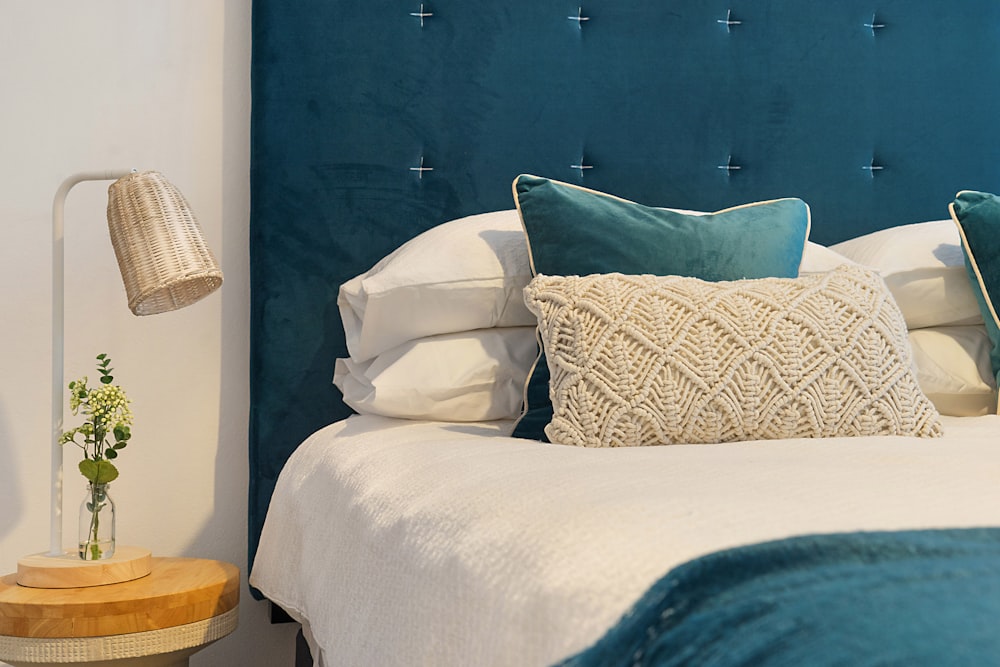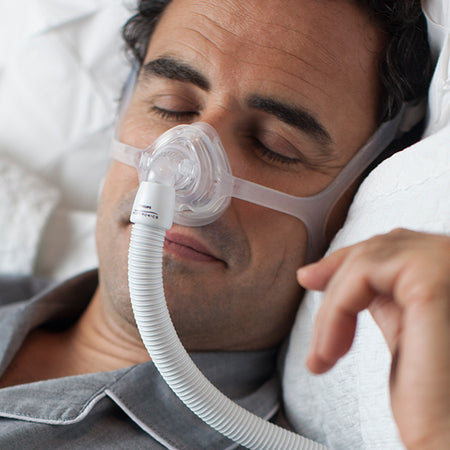According to Johns Hopkins, 45 percent of adults snore at least occasionally, and 25 percent snore on a consistent basis. If you’ve ever spent a night with your head stuffed under the pillows because of a spouse’s snoring, you know how disruptive to sleep this can be.
While snoring can sometimes be the result of something as commonplace as a sinus infection or allergies, frequent, severe snoring is often an early warning sign of sleep apnea.
Understanding the link between snoring and sleep apnea can help you take control of your sleep quality and avoid other serious medical concerns.
How Are Snoring and Sleep Apnea Related?

Sleep apnea is a condition in which the soft tissues in the upper airway block the flow of air during sleep. This typically occurs when the muscles relax or when excess fatty tissue causes the airways to collapse. As the airways close off, you begin to snore loudly as you breathe in and out.
When the airways close off entirely, you stop breathing. Those with obstructive sleep apnea will typically then wake up choking and gasping for breath. After one or two breaths, the flow of oxygen is restored and the person falls back to sleep. While these incidents can happen upwards of 30 times in a single hour, most individuals with sleep apnea don’t even remember that this happened during the night. However, they will feel extremely fatigued in the morning, and their spouse will likely observe the interrupted breathing.
Left unchecked, sleep apnea can greatly increase your risk for serious health conditions like high blood pressure, type 2 diabetes, heart attack, and stroke. Daytime sleepiness also increases the likelihood of motor vehicle and work-related accidents that could result in serious injury. Excess fatigue can also negatively affect your mental health. In addition to increased irritability, those with sleep apnea often experience trouble concentrating and are more likely to experience anxiety or depression.
So, Does Snoring Mean I Have Sleep Apnea?

Not everyone who snores has sleep apnea. Snoring that is linked to sleep apnea tends to be loud enough to disturb the sleep of others, and is also interrupted by silent periods or moments when you gasp or choke for breath. Snoring also tends to be the loudest when sleeping on your back, as this is the worst position for sleep apnea.
As previously noted, however, other health conditions such as sinus infections and allergies can also contribute to snoring. Certain genetic factors, such as a long uvula or soft palate or poor muscle tone, can also contribute to snoring, even if you don’t have sleep apnea.
Consuming too much alcohol, particularly late in the evening, can increase the risk for both snoring and sleep apnea by relaxing the throat muscles. Sleep deprivation can also make you more likely to snore. In addition, men and overweight individuals are the most likely to snore — and are more likely to develop sleep apnea.
Because sleep apnea and snoring are so closely related, anyone who snores on a consistent basis should investigate the reasons behind their troubled sleep.
What to Do About Snoring Concerns

If your spouse complains of loud snoring and you feel extremely fatigued when you wake up in the morning, it would be wise to take a closer look into whether you are experiencing obstructive sleep apnea.
Your doctor will typically start by recommending lifestyle changes that can reduce the severity of snoring. Treating nasal congestion and making an effort to get a full seven to nine hours of sleep each night can reduce the frequency and intensity of your snoring. Many people can also reduce the severity of snoring by losing weight and cutting out late-night alcohol consumption. Sleeping on your side, rather than your back, can also reduce snoring.
If these lifestyle changes don’t seem to be working, you should consider getting evaluated for sleep apnea. Sleep apnea and other sleep disorders are typically diagnosed though an overnight sleep study. During this study, sleep specialists evaluate your breathing patterns, heart rate, brainwaves, and other vital signs while you are asleep. This allows them to determine if snoring and fatigue are the result of obstructive sleep apnea or another condition.
If you are diagnosed with sleep apnea, the sleep specialist will prescribe a CPAP machine. CPAP machines supply a steady flow of pressurized air to keep your breathing passages open throughout the night. By keeping your airways from collapsing, a CPAP machine will stop the interruptions to breathing, as well as loud snoring. You will be able to sleep soundly and without interruptions.
Get Quality CPAP Equipment From Help Medical Supplies
If a sleep study reveals that your snoring is a result of obstructive sleep apnea, there’s only one thing to do: mitigate your condition by using a CPAP machine. Though a CPAP machine and mask may take some getting used to, this is by far the most effective solution for helping you enjoy uninterrupted sleep (and to stop snoring).
The cost of CPAP equipment can be a barrier for some, but that doesn’t have to be the case when you order your equipment through Help Medical Supplies. Not only does our online store offer significant discounts off MSRP on equipment from leading brands like ResMed and Fisher and Paykel, but you can also take advantage of available interest free financing and free shipping on select orders.
By using quality CPAP equipment to take control of sleep apnea, you and your spouse will get the rest you deserve.

